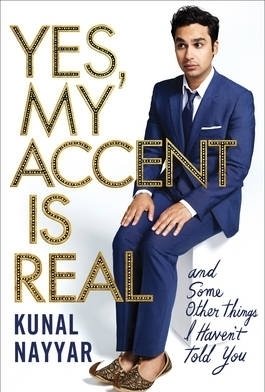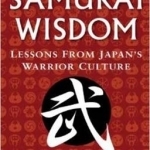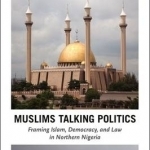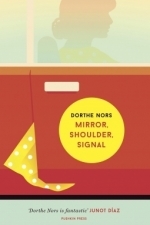Night Reader Reviews (683 KP) rated Outland Exile: Book 1 of Old Men and Infidels in Books
Jan 9, 2020
The main reason that it was hard for me to initially enjoy the book was because of the authors use of short phrases. These phrases made the reading feel choppy and prevented a nice even flow. I believe this was mainly a problem because it frequently took the immersion away from the story, and jarringly forced me back into the real world as I re-read a section to see if it made more sense. I feel that many readers enjoy the immersion in a fictional world when reading a good book, so this may be a bit of an issue for some.
W. Clark Boutwell also appears to have a very good education, possibly with a large focus on the English language. The reason that I think this might be the case is because of the vocabulary found in the book, some of which seemed unnecessary. Words such as “metaphoric” “adroitly” and “remonstrations” were used, much to my initial confusion. Then there was also “pantomimed”, “sere”, and “realpolitik” that had me searching for a dictionary. On top of the strange wording at times the author also used terms such as “snakelike” and “warlike” with frequency. The amount these words were used make them almost feel overused or like errors.
The amazing plot-line of the story also offers a few different lessons that many people will have to learn in their lives. The first of these lessons is the fact that not everyone, including the government, is not always operating in your best interest. It shows that often the people who are considered to be higher-ups are more worried about themselves and their advancement than the ‘little people’ that they hurt along the way. The book also shows that a simple life is often happier than a technology-filled one, proving that the technology that is supposed to be bringing us together is also causing us to lose touch with other people at the same time. Finally, it brings to light an idea that some might find difficult to accept. That fact would be that not everything you grow up believing is necessarily the truth and that history is almost always written by the winners and the loser’s voice gets lost.
During the course of the story Malila, a Lieutenant for the Unity is sent out to Sunprairie Station with a group of bodyguards in order to repair the station. She then finds herself in the hands of Jesse Johnstone and making her way to Kentucky and stopping at a village across the Ohio River. It is here that she starts to learn just how lacking her life in the Unity was. She also learns just how much of a captive she was in her “free” Unity and how much of her supposed life there was all just an illusion.
What I liked best was watching Malila expand and grow as an individual. The author’s writing made me feel like I actually knew the characters. When tragedy struck I felt real worry and concern for them and did not want to stop reading until I knew what happened to them. On the other side, I least liked the fact that I almost gave up on reading the book early because of how slow and choppy the writing felt. The use of the obscure words made me believe there were multiple misspellings only to find that the words were just typically unused.
The target readers for this story would be young adults, starting at about high school aged and older. Concepts of pleasure sex and a few mentions of rape make this book unsuitable for most younger readers. With all of this being said I would give this book the rating 3 out of 4 because even with it being hard to get into the story was very enjoyable. The plot-line is strong and the life lessons the Malila learns are things that most people should probably learn at some point in their lives. I look forward to reading the rest of the series as it comes out.
Hazel (1853 KP) rated Mirror, Shoulder, Signal in Books
Aug 7, 2017
Shortlisted for The Man Booker International Prize 2017, Mirror, Shoulder, Signal is a piece of Danish literature by Dorthe Nors, translated into English by Misha Hoekstra. It has a tragicomic nature, introducing the 40-year-old Sonja, a woman who is trying but failing to move in the right direction.
Sonja is the type of character full of flaws that readers will recognise in themselves. Although she has successfully become self-employed, translating crime novels from Swedish into Danish, Sonja feels she has not accomplished anything in life. Despite one unlucky attempt at love, Sonja has remained single, moving to Copenhagen in an attempt to find herself. Determined to earn her driving licence Sonja braves the lessons in the busy city, however, she cannot handle gear changes. In other areas of her life, she tries weekly massage therapy and attempts a meditation exercise. Unfortunately, Sonja remains apathetic to the whole scenario and would rather be somewhere warm eating cake.
Mirror, Shoulder, Signal is a cleverly crafted title that makes repeat appearances throughout the narrative. The three words are instructions that Sonja repeats as a mantra each time she pulls away from the curb in her instructor’s car. The majority of the book takes place during these lessons, or, if not there, face down on Ellen’s massage table.
Sonja’s narration constantly varies between the present and memories from her childhood. A particular focus is the recollection of events involving her sister Kate. They may not have been close when they were young, but now it is almost impossible for Sonja to contact her sister. It is as though Sonja has been alienated from her own family.
Embellished with sexual innuendos, poor attempts at humour fail to bring any excitement to the story. There is no clear plot. At the beginning, readers may wonder if she will earn her driver’s licence – she does not – find love – she does not – find herself – she does not. What, then, was the point of this novel? Apart from a suggestion of future happiness in the final chapter of the book, there is no sense of resolution.
The issue with some translated stories is the loss of original intent and meanings. This does not seem to have been much of a problem in this instance; however, the translator has not been entirely successful in converting the Danish into a naturally flowing English.
Overall, Mirror, Shoulder, Signal is a bit of a disappointment, especially because it has been shortlisted for such a prestigious prize. Since the prize is meant to be awarding the author for continued creativity and contribution to fiction, it makes you wonder what critics saw in this novel to believe it stood a chance at earning the honour.
Hazel (1853 KP) rated Mirror, Shoulder, Signal in Books
Dec 7, 2018
Shortlisted for The Man Booker International Prize 2017, <i>Mirror, Shoulder, Signal</i> is a piece of Danish literature by Dorthe Nors, translated into English by Misha Hoekstra. It has a tragicomic nature, introducing the 40-year-old Sonja, a woman who is trying but failing to move in the right direction.
Sonja is the type of character full of flaws that readers will recognise in themselves. Although she has successfully become self-employed, translating crime novels from Swedish into Danish, Sonja feels she has not accomplished anything in life. Despite one unlucky attempt at love, Sonja has remained single, moving to Copenhagen in an attempt to find herself. Determined to earn her driving licence Sonja braves the lessons in the busy city, however, she cannot handle gear changes. In other areas of her life, she tries weekly massage therapy and attempts a meditation exercise. Unfortunately, Sonja remains apathetic to the whole scenario and would rather be somewhere warm eating cake.
<i>Mirror, Shoulder, Signal</i> is a cleverly crafted title that makes repeat appearances throughout the narrative. The three words are instructions that Sonja repeats as a mantra each time she pulls away from the curb in her instructor’s car. The majority of the book takes place during these lessons, or, if not there, face down on Ellen’s massage table.
Sonja’s narration constantly varies between the present and memories from her childhood. A particular focus is the recollection of events involving her sister Kate. They may not have been close when they were young, but now it is almost impossible for Sonja to contact her sister. It is as though Sonja has been alienated from her own family.
Embellished with sexual innuendos, poor attempts at humour fail to bring any excitement to the story. There is no clear plot. At the beginning, readers may wonder if she will earn her driver’s licence – she does not – find love – she does not – find herself – she does not. What, then, was the point of this novel? Apart from a suggestion of future happiness in the final chapter of the book, there is no sense of resolution.
The issue with some translated stories is the loss of original intent and meanings. This does not seem to have been much of a problem in this instance; however, the translator has not been entirely successful in converting the Danish into a naturally flowing English.
Overall, <i>Mirror, Shoulder, Signal</i> is a bit of a disappointment, especially because it has been shortlisted for such a prestigious prize. Since the prize is meant to be awarding the author for continued creativity and contribution to fiction, it makes you wonder what critics saw in this novel to believe it stood a chance at earning the honour.

The tree that refused to shed - An inspiring story
Book, Education and Stickers
App
"The tree that refused to shed is a wonderful app, and it’s original story is even better. Kids...

Yes, My Accent is Real: A Memoir
Book
A delightfully funny collection of essays by the Indian-American actor, Kunal Nayyar, who plays...

Pioneers in Public Health: Lessons from History
Book
The public health movement involved numerous individuals who made the case for change and put new...

Golden Stripes: Leadership on the High Seas
Book
'Inspiring leadership lessons from the sea,' Rear Admiral Robert O. Wray Jr, USN (ret), author of...

Samurai Wisdom: Lessons from Japan's Warrior Culture
Book
The ancient warrior culture of Japan produced a sophisticated martial philosophy that we know today...

Support is Sexy Podcast with Elayne Fluker | Interviews with Successful Women Entrepreneurs 5 Days a Week!
Podcast
Hosted by media entrepreneur, consultant and coach Elayne Fluker, the SUPPORT IS SEXY podcast...

Muslims Talking Politics: Framing Islam, Democracy, and Law in Northern Nigeria
Book
For generations Islamic and Western intellectuals and policymakers have debated Islam's...

